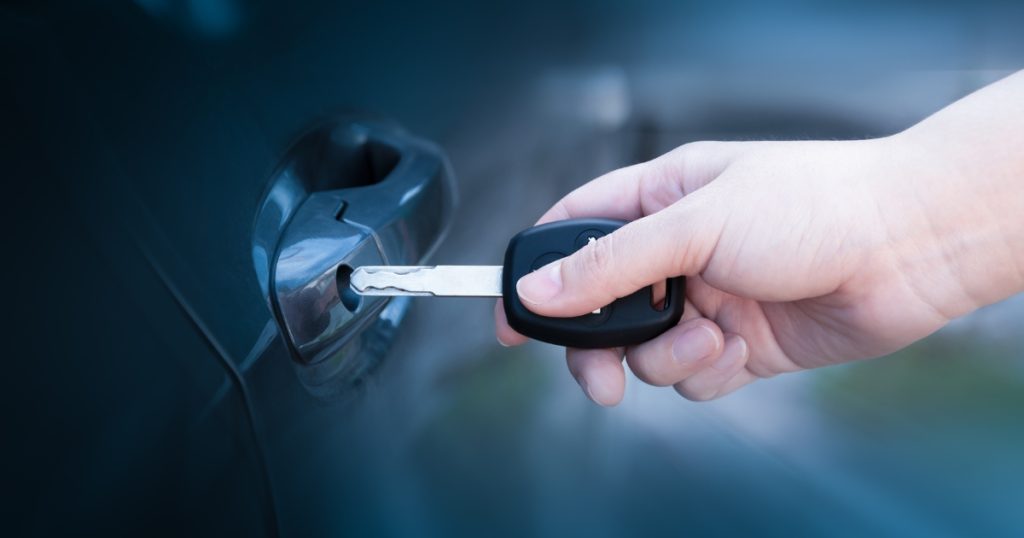Car locks are essential to keeping your vehicle safe and secure. They come in various types and designs, each with its unique features and benefits.
In this comprehensive guide, we will delve into the world of car locks, providing essential information for car owners to ensure they understand their vehicle’s locking mechanisms, security features, and maintenance requirements.
We will also cover various ways to resolve common car lock problems, should you ever encounter them. So, let’s get started!
The Evolution of Car Locks
The Early Years
Car locks have been around since the early days of the automobile, though they were much simpler than the sophisticated systems we have today. Early car locks typically used a simple key and lock mechanism, which could be easily picked or bypassed with a little skill.
As car theft became more prevalent, manufacturers began to develop more advanced and secure locking systems.
The Introduction of Electronic Locks
By the 1980s, car lock technology had progressed significantly. Electronic locks became standard, featuring a remote key fob that communicated with the vehicle’s central locking system. This allowed drivers to lock and unlock their vehicles from a distance, providing added convenience and security.
These systems often used rolling code technology, which continuously changed the code transmitted by the key fob, making it more difficult for thieves to intercept and copy.
The Advent of Smart Locks
Today, car locks are more advanced than ever, with many vehicles featuring smart locking systems that use a combination of keyless entry, biometrics, and smartphone connectivity. These systems offer drivers enhanced security and convenience, while also making it much more challenging for criminals to gain unauthorized access.
Types of Car Locks
Traditional Mechanical Locks
While electronic and smart locks are becoming more prevalent, many vehicles still use traditional mechanical locks. These locks are operated using a physical key, which engages a series of pins or tumblers to unlock the door or ignition.
Mechanical locks are reliable, but they can be vulnerable to lock-picking and wear over time.
Electronic Locks
Electronic locks are a significant step up from mechanical locks in terms of security and convenience. They typically use a remote key fob, which communicates with the car’s central locking system to lock and unlock the doors.
Electronic locks often feature a backup mechanical key in case the remote’s battery dies or the electronic system malfunctions.
Keyless Entry Systems
Keyless entry systems have become increasingly popular in recent years, allowing drivers to lock and unlock their vehicles without using a traditional key. Instead, a small electronic device or key fob is used, which communicates with the vehicle’s security system when in close proximity.
Some keyless entry systems also enable you to start the car remotely, offering added convenience.
Biometric Locks
Biometric locks use unique physical characteristics, such as fingerprints, facial recognition, or iris scans, to identify authorized users and grant access to the vehicle. These systems offer a high level of security, as they are difficult to bypass or replicate.
However, they can also be more expensive and may require regular maintenance to ensure optimal performance.
Smartphone-Connected Locks
Maintaining Your Car Locks
Regular Cleaning
Dirt, dust, and debris can accumulate in your car locks over time, potentially leading to issues with the locking mechanism. To maintain optimal performance, it’s essential to regularly clean your locks.
Use a lock-specific lubricant or graphite powder to keep the internal components moving smoothly, and avoid using oil or grease, as these can attract dirt and cause further issues.
Key Maintenance
Look after your car keys to avoid issues with your locks. Damaged or worn keys can cause problems when trying to unlock your vehicle, and may even become stuck or break inside the lock. Keep your keys clean and replace them if they become damaged or excessively worn.
Inspecting for Wear and Damage
Regularly inspect your car locks for signs of wear or damage. If you notice any issues, such as difficulty turning the key, it’s essential to address them promptly to avoid further complications. Consult a professional locksmith or your vehicle’s manufacturer for advice on any necessary repairs or replacements.
Common Car Lock Problems and Solutions
Stuck or Broken Key
If your key becomes stuck or breaks inside the lock, it’s important to address the issue carefully to avoid causing further damage. If the key is visible and protruding from the lock, you may be able to use needle-nose pliers to gently pull it out. If the broken key is not visible, it’s best to consult a professional locksmith to safely remove the broken piece and avoid damage to the lock.
Frozen Locks
In cold weather, car locks can become frozen and difficult to operate. To resolve this issue, try heating your key with a lighter or using a lock de-icer spray to melt the ice inside the lock. Avoid using hot water, as this can refreeze and cause further issues.
Worn or Damaged Locks
If your car lock is worn or damaged, it may be difficult or impossible to operate. In such cases, it’s essential to consult a professional locksmith or your vehicle’s manufacturer for advice on necessary repairs or replacements.
Electronic Lock Malfunctions
Electronic lock issues can be caused by a variety of factors, including dead batteries, damaged key fobs, or system malfunctions. If your electronic lock is not working, first try replacing the key fob battery. If the issue persists, consult a professional locksmith or your vehicle’s manufacturer for assistance.
Car Lock Security Tips
Use High-Quality Locks
Investing in high-quality locks for your vehicle is essential to ensuring its security. Look for locks that feature advanced technologies, such as rolling codes or biometrics, which offer increased protection against theft.
Regularly Update Your Locks
As car lock technology evolves, it’s crucial to keep your vehicle’s locks up-to-date. Consider updating your locks every few years or when new, more secure technologies become available.
Secure Your Key Fob
Key fobs can be easily cloned or intercepted, so it’s essential to keep them secure. Store your key fob in a signal-blocking pouch when not in use, and avoid leaving it in plain sight or near windows where it can be easily accessed.
Use Additional Security Measures
In addition to your car locks, consider implementing additional security measures, such as steering wheel locks, wheel clamps, or car alarms, to further deter potential thieves.
Frequently Asked Questions
How often should I replace my car locks?
There is no specific timeframe for replacing car locks, as it largely depends on the quality and condition of your current locks. However, it’s a good idea to consider upgrading your locks every few years or when new, more secure technologies become available. If you notice signs of wear or damage, consult a professional locksmith or your vehicle’s manufacturer for advice on necessary repairs or replacements.
Can a locksmith rekey my car locks?
Yes, a professional car locksmith can rekey your car locks, providing you with a new set of keys while rendering the old ones useless. This is a cost-effective solution if you’ve lost your keys or are concerned about unauthorized access to your vehicle. Keep in mind that rekeying might not be possible for all types of car locks, particularly those with advanced electronic or biometric systems.
What should I do if my car lock is jammed?
If your car lock is jammed, avoid using excessive force, as this can cause further damage to the lock. Instead, first try using a lock-specific lubricant or graphite powder to loosen any debris or dirt inside the lock. If the issue persists, consult a professional locksmith for assistance.
Can I install a more advanced lock on my older car?
In many cases, it’s possible to upgrade your older car’s locks to more advanced systems, such as keyless entry or smartphone-connected locks. This can provide enhanced security and convenience for your vehicle. Consult a professional locksmith or your vehicle’s manufacturer to discuss available options and compatibility with your specific car model.
How can I prevent my car locks from freezing in cold weather?
To prevent car locks from freezing, consider applying a lock-specific lubricant or graphite powder before the cold weather sets in. This can help keep moisture from accumulating inside the lock, which can lead to freezing. In addition, using a lock de-icer spray or heated key can help melt any ice that has already formed inside the lock.
Conclusion
Understanding your car locks and their various features is essential for maintaining your vehicle’s security and ensuring its longevity.
By staying informed about the latest lock technologies, performing regular maintenance, and addressing any issues promptly, you can help protect your car from theft and unauthorized access.
Remember, investing in high-quality locks and implementing additional security measures can go a long way in keeping your vehicle safe and secure.

